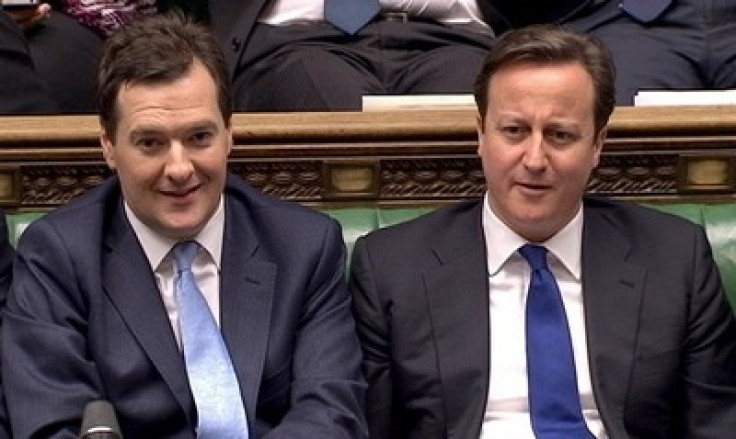Cameron's 'Long Term Plan For Britain' Gets Boost With Inflation and Energy Price Relief

David Cameron has stepped up his campaign to turn the political tide after an awful autumn which has seen Labour seizing the agenda and setting the political weather.
He was given a significant boost by latest figures showing a drop of inflation from 2.7% to 2.2% last month, its lowest rate for a year, fitting neatly into his strategy of economic recovery leading to election victory.
The prime minister declared the figures were: "Encouraging news for hard working people" and said the government was: "sticking to a long term plan for Britain".
He also welcomed the announcement by one of the big six energy firms, EDF, that it was increasing prices by "only" 3.9%, with a suggestion the other companies charging more were wrong to blame it on wholesale costs.
Although that came with the clear threat from the firm that, unless the government removes so-called green levies, prices will have to rise again.
Cameron also confirmed he will visit China next month for a growth-boosting trade mission which, he also said was: "a key part of us delivering our long term plan for Britain".
The visit aims to build on the recent tour by Chancellor George Osborne during which he announced major contracts with China, including involvement in the building of a new generation of nuclear power stations.
Both Cameron and Osborne see prospective deals with Beijing as such a core component of their growth strategy that it was even worth delaying the Chancellor's autumn statement for a day to accommodate the visit.
One of the key parts of that statement, now on 5 December, is expected to be a plan to meet Labour's challenge over the cost of living crisis and energy price freeze pledge.
It is expected the Chancellor will do as the energy firms have suggested and switch the green levies from them and onto general taxation instead. But the threat from EDF will not have gone down well in government.
Making its announcement, EDF said: "If the Government makes bigger changes to the costs of its social and environmental schemes than EDF Energy has anticipated, the company pledges to pass these savings onto customers.
"However, if changes to social and environmental programmes are less than anticipated, the company may have to review its standard variable prices again."
The tough talk came on the day Energy Secretary Ed Davey clearly believed he was sending out his own tough message to energy firms telling them not to treat customers as "cash cows" and warning them they risked becoming as unpopular as bankers.
But the IPPR think tank summed up many people's reaction, with senior Research Fellow Reg Platt saying: "EDF have, in effect, issued a threat to government saying 'cut back your policies or we'll raise our prices further'. The policy they want to cut provides households with insulation and efficient boilers to protect them against rising energy bills."
Still, the smart money is still on the Chancellor doing exactly that and putting the burden onto taxpayers.
But if he is to driver forward Cameron's "long term plan for Britain", he is going to need to come up with some other cost of living policies to combat Miliband's message.
It will be a vital autumn statement for the government's fortunes.
© Copyright IBTimes 2024. All rights reserved.






